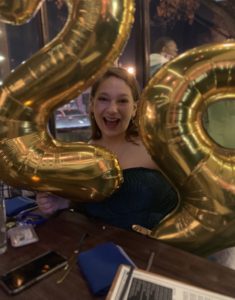Author: Savannah Spurlock
Zillennials face a great stigma when it comes to mental health. Society says it’s the way we were raised that led us to our ultimate downfall. They say it’s the technology we use, the lack of education we received, and the work ethic we will never have. Yes, some of our problems are situational, and we may make a big deal out of nothing. However, some of us really do have a mental illness.
A “Zillennial” can be described as a micro-generation that includes those born between the mid to late 90’s. We aren’t exactly Millennials, but we aren’t a part of Gen Z either.
I was born in ‘95 and was raised in a suburban home with parents who are still married. I have 1 younger sister, an older sister who passed away, and 1 older stepsister.
I went to the public schools in my neighborhood. I was in kindergarten during 9/11, so we started having both “Lock Downs” and Fire Drills. We could still drink chocolate milk for lunch and play on equipment outside that could break our bones. We hung upside down on monkey bars and jumped off swings.
My dad worked a blue-collar job with extended hours of overtime each night. My mom has worked several jobs, sometimes more than 1 at a time. She still managed to give me rides to school and help lead my Girl Scout Troop, and my dad found time to assist coaching my softball team. We lost some games along the way, but we fought hard and rubbed dirt on our cuts.
Through elementary school, I was the bigger girl and only wore jeans with an elastic waist. I was made fun of for my size yet envied for my intelligence. I always did my homework, and my clothes pin always stayed on the green page for good behavior. Most times I was praised, but I had my fair share of “talkin’ to’s.”
In junior high, I made the volleyball team, took advanced classes, did daily announcements, and played tennis. When I started having chronic migraines, my social and academic life came to a pause. I spent most of my 7th and 8th grade years educating myself. It was difficult trying to learn when my teacher only posted lessons online. Textbooks were not yet obsolete but were often hard to get your hands on. Yes, Zillennials still lived part of their lives without cell phones and high-speed internet.
On the first day of freshman year, I walked home to a house that felt empty. My mom was asleep and silent in bed. Her body was septic, and she would need to undergo major kidney surgery. When the medical bills came in, we knew we would be broke. There was no new dress for homecoming, it was a struggle to purchase school shirts, and my mom began getting groceries from the local food bank. We were substituting Agave Nectar for sugar before anyone else knew what it was.
The next years were full of long nights, after school rehearsals, more migraines, and a gallbladder surgery. But by my senior year, we were back on our feet. I took a forensics class, worked as a waitress, wore a gorgeous prom dress, and was voted the most talented female in my class.
I was quickly accepted into the trade school I’d applied to. I was studying, serving an internship, paying my own bills, serving as VP of my class, achieving academic honors, was a member of our fraternity, and getting ready to graduate.
Then suddenly, at 19, my life took a turn, and I needed to seek help. I wasn’t happy-go-lucky anymore. I didn’t care anymore. It was hard for me to brush my teeth and comb my hair, and when I did, it was only because I was forcing myself out the door crying. When I finally saw a psychiatrist, I was diagnosed with bipolar disorder II.
For years I have heard that my generation failed me. We were weak, we didn’t need medicine, our families babied us, we just needed to get over it. Still, the stigma remains. It’s as if being born in this gap of time defines our capability of having emotions. We each have our own stories, so don’t just ask our age. The “Zillennium” is a period, not an illness.
 Savannah Spurlock is a fun-loving, dog mom from Texas. She moved to the Pacific Northwest for a professional opportunity and loves crafting, bingeing TV shows and podcasts, and listening to classic rock.
Savannah Spurlock is a fun-loving, dog mom from Texas. She moved to the Pacific Northwest for a professional opportunity and loves crafting, bingeing TV shows and podcasts, and listening to classic rock.
Savannah was diagnosed with Bipolar Disorder II and ADHD in 2015, right before graduating from college. She provides an interesting perspective within her writing due to her history of personal loss, finding independence as a single woman, and having experience working in the death and dying industry as a licensed funeral director and employee at a nonprofit tissue bank.
She aims to raise awareness, but until recently, has only shared her stories with friends and family. She is excited to be a blogger for the IBPF, and looks forward to spreading encouraging messages.


